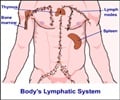A major step forward in the development of an effective therapy against two deadly viruses, Nipah virus and the related Hendra virus has been reported
A major step forward in the development of an effective therapy against two deadly viruses, Nipah virus and the related Hendra virus has been reported by a collaborative research team from the Uniformed Services University of the Health Sciences (USU), the Australian Animal Health Laboratory (AAHL), and the National Cancer Institute (NCI), National Institutes of Health (NIH).
The results of this finding appear October 30, 2009 in the open access journal PLoS Pathogens. The full study will be available following the release of the embargo.Nipah virus and Hendra virus are found in Pteropid fruit bats (flying foxes) and are characterized by their recent emergence as agents capable of causing illness and death in domestic animals and humans.
In experiments carried out in ferrets at the AAHL in Geelong, Victoria, Australia, where there is a high-level safety and security facility for working with live Nipah and Hendra virus, the team of researchers demonstrated that giving an anti-virus human monoclonal antibody therapy after exposure to Nipah virus protected the animals from disease.
"These findings are extremely encouraging and clearly suggest the potential that a treatment for Hendra virus infection in a similar manner should be possible, given the very strong cross-reactive activity this antibody has against Hendra virus," said Deborah Middleton, DVM, PhD., who directed the animal experiments at the AAHL.
Recent earlier work at NCI and USU resulted in the discovery and development of a human monoclonal antibody, m102.4, which could attack a critical component of both the Nipah and Hendra viruses. Antibodies - proteins found in blood or other bodily fluids of vertebrates - are used by the immune system to identify and neutralize viruses and bacteria.
Study corresponding authors Christopher C. Broder, Ph.D., professor of Microbiology at USU and Katharine Bossart, Ph.D., a USU alumna, now an assistant professor in the Department of Microbiology, Boston University School of Medicine and an investigator at the National Emerging Infectious Diseases Laboratories Institute in Boston, led a team of researchers to test the effectiveness of the new antibody therapy in animals. The experiments were supported in part by the National Institute of Allergy and Infectious Diseases, NIH.
Advertisement
Nipah virus and Hendra virus, members of the henipavirus family, are highly infectious agents that emerged from flying foxes in the 1990s to cause serious disease outbreaks in humans and livestock in Australia, Malaysia, Singapore, Bangladesh and India. Recent outbreaks have resulted in acute respiratory distress syndrome and encephalitis, person-to-person transmission, and up to 75 percent case fatality rates among humans. Additionally, these properties could allow the viruses to be used as bioterror weapons.
Advertisement
According to study author Dr. Broder, "In order to make clinical use of this therapeutic antibody against Hendra or Nipah virus, larger amounts will need to be prepared under proper manufacturing guidelines, carefully evaluated again in animal models and safety tested for human use."
"We hope this demonstration of anti-viral activity will foster some immediate activities to facilitate further development for future use in humans," said Dr. Bossart.
"There are currently no licensed and approved vaccines or therapeutics for prevention and treatment of disease caused by these viruses for humans or livestock," said Dr. Broder. "This fully-human monoclonal antibody is the first antiviral agent against the Nipah and Hendra viruses that has a genuine potential for human therapeutic use."
"The generation of these antibodies as therapeutics could help control outbreaks in geographical regions susceptible to henipaviruses, and could turn information from a deadly pathogen into a benefit for mankind," said Dr. Dimitrov.
Located on the grounds of Bethesda''s National Naval Medical Center and across from the National Institutes of Health, USU is the nation''s federal school of medicine and graduate school of nursing. The University educates health care professionals dedicated to career service in the Department of Defense and the U.S. Public Health Service. Medical students are active-duty uniformed officers in the Army, Navy, Air Force and Public Health Service who are being educated to deal with wartime casualties, natural disasters, emerging infectious diseases, and other public health emergencies. Of the University''s nearly 4,400 physician alumni and more than 400 advanced practice nurses, the vast majority serve on active duty and are supporting operations in Iraq, Afghanistan, and elsewhere, offering their leadership and expertise. The University also has graduate programs open to civilian and military applicants in biomedical sciences and public health committed to excellence in the didactic and research training which have awarded more than 300 Ph.D. and 100 M.S. degrees to date.
Source-Newswise
RAS












